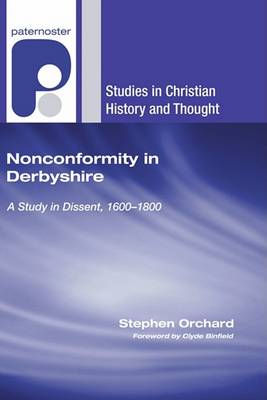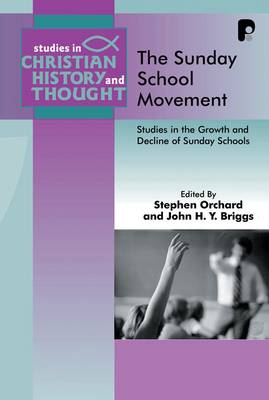Studies in Christian History and Thought
2 total works
There is no standard nineteenth-century history on Derbyshire as there is for many other counties. Yet there is an important story to be told.
Derbyshire was the birthplace of John Cotton; the minutes of its Wirksworth Classis are a rare survival from the Commonwealth period; from Duffield in Derbyshire Roger Morrice, whose significant Journal has been published, was ejected.
The book England's Remembrancer (1663), published sermons by ejected 'county ministers', as distinct from London ones, is dominated by ministers from Derbyshire or with connections there.
An important Dissenting Academy was established at Finder, near Derby, and the diary of James Clegg, dissenting minister, has been published. This book provides the context for these events and tells the stories of the county families who promoted Dissent. An evaluation of Nonconformity in Derbyshire also provides a case study for a wider assessment of the impact of Dissent out of London and its eventual decline through the eighteenth century.
The story concludes with the attempts of Thomas Wilson, an important founder of modern Congregationalism, to revive dissenting causes in his home county as the eighteenth century drew to a close.
Derbyshire was the birthplace of John Cotton; the minutes of its Wirksworth Classis are a rare survival from the Commonwealth period; from Duffield in Derbyshire Roger Morrice, whose significant Journal has been published, was ejected.
The book England's Remembrancer (1663), published sermons by ejected 'county ministers', as distinct from London ones, is dominated by ministers from Derbyshire or with connections there.
An important Dissenting Academy was established at Finder, near Derby, and the diary of James Clegg, dissenting minister, has been published. This book provides the context for these events and tells the stories of the county families who promoted Dissent. An evaluation of Nonconformity in Derbyshire also provides a case study for a wider assessment of the impact of Dissent out of London and its eventual decline through the eighteenth century.
The story concludes with the attempts of Thomas Wilson, an important founder of modern Congregationalism, to revive dissenting causes in his home county as the eighteenth century drew to a close.
From a historical point of view Sunday schools have immense significance. In the nineteenth century Sunday schools were part of general educational provision and represented the Christian philanthropic impulse to provide a basic education to the population at large and at low cost. In this book a range of experts assess different aspects of the history of the Sunday school movement. Contributors include Clyde Binfield Faith Bowers John Briggs Grayson Ditchfield Hugh McLeod Stephen Orchard Jack Priestley Geoffrey Robson and Doreen Rosman.

